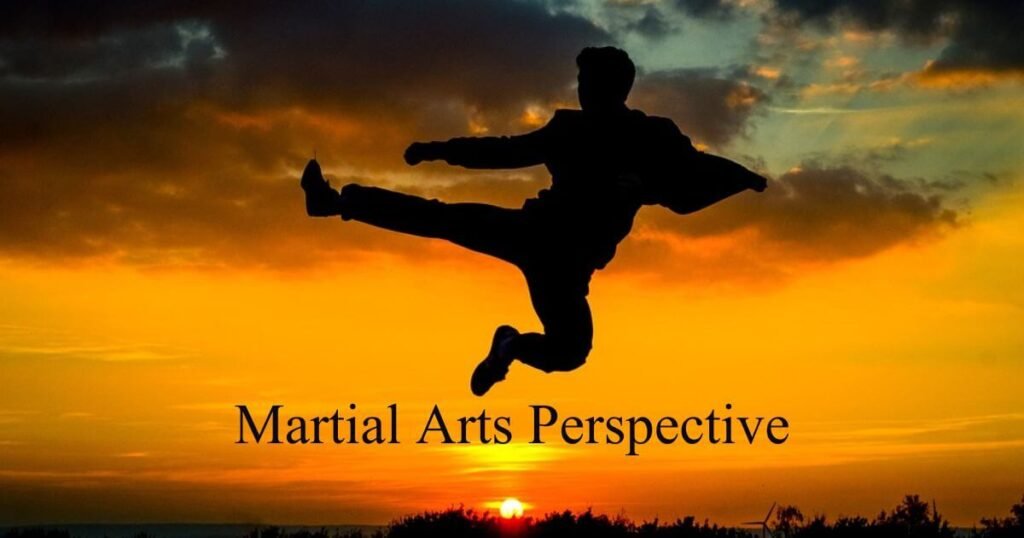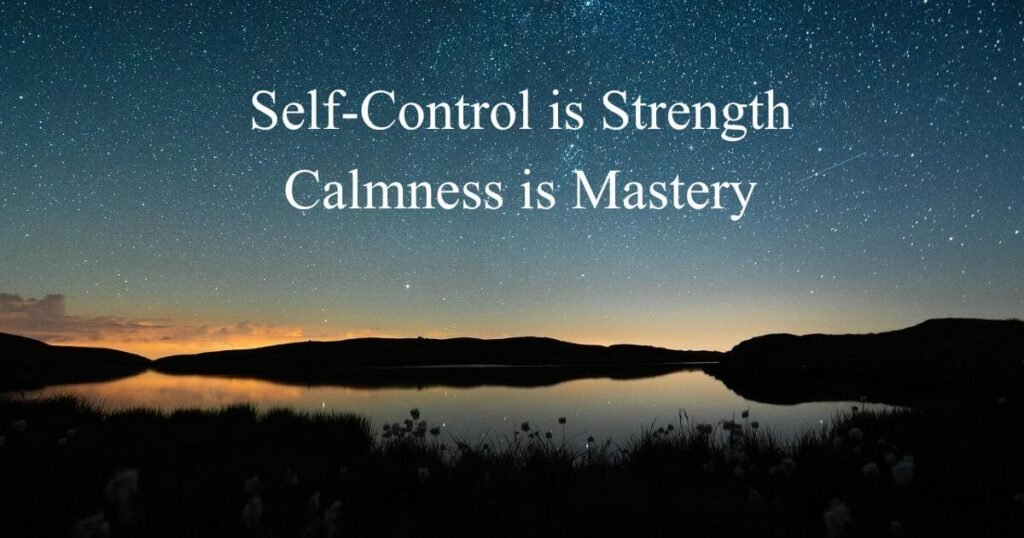Through years of mindfulness practice, I’ve discovered that self-control isn’t about suppressing emotions or denying impulses. True strength emerges when we cultivate awareness of our thoughts without acting impulsively. The ancient wisdom of stoicism and buddhism teaches us that mastery begins with regulating internal reactions.
Calmness represents more than temporary peace; it’s a deliberate state of composure that enables better decision-making. When we develop resilience through consistent practice, our ability to navigate challenging situations transforms. This journey requires dedication and patience, but the profound influence on our well-being becomes unmistakable over time.
Understanding & Embracing Self-Control and Calmness
The philosophical roots of self-control trace back to ancient wisdom, where mastery over one’s emotions represented ultimate strength. Modern neuroscience reveals how prefrontal cortex regions create natural braking systems against impulsive reactions. Intelligence emerges when we choose delayed gratification over immediate temptations.
Calmness functions as an internal operating system, transforming chaotic inputs into deliberate, meaningful outputs. Rather than suppressing feelings, true discipline involves responsive readiness – like navy seal operators making faster, cleaner decisions under pressure. This balanced approach redefines personal power as internal serenity, not external domination.
Calmness as Mastery
Calmness transforms chaotic inputs into deliberate, meaningful outputs through practiced discipline. When anxiety threatens composure, true mastery emerges from tranquility. Buddhist traditions emphasize equanimity as non-reactivity to circumstances. Mindfulness creates heightened awareness, enabling regulation of behavior without judgment. Meditation techniques like breath checks throughout the day act as mental pit stops. Resilient individuals use setbacks as opportunity to learn and adjust their approach. Cold exposure and intense exercise provide brief physical stress that inoculates the system. Professional decision-makers who weigh pros and cons avoid impulsive decisions they might regret later.
Epictetus taught that power lies within our mind, not external change or control. The hardest yet most rewarding project involves governance of behaviors through willpower. Djokovic credits breath-anchoring routine between serves for converting nerves into pinpoint accuracy. Entrepreneurs navigating funding rounds often face make-or-break negotiations requiring composed messaging. Healthcare nurses in high-acuity wards completing mindfulness-based stress-reduction programs report lower burnout rates. This strategic focus creates neural pathways that compound over time, forging lasting transformation.
The Role of Mindfulness and Meditation
Mindfulness transforms the brain’s neural circuits, creating measurable changes in the dorsolateral and ventromedial regions. This biological shift enables practitioners to pause before reacting emotionally to provocative situations. Research shows that regular meditation strengthens synaptic pathways, making wise choices easier through repetition. The physiological benefits include lower cortisol levels and improved heart rate variability.
Present moment awareness develops self-awareness as practitioners learn to observe their thoughts without judgment. This powerful tool helps overcome challenges by creating space between stimulus and response. Extended exhalations activate the parasympathetic nervous system, shifting the body into rest-and-digest mode. Mindfulness practice literally sculpts the brain’s braking system, differentiating humans from other mammals through conscious choice.
Impact on Health, Well-Being and Relationships
The conscious practice of self-control creates measurable neurological changes that directly strengthen your immune system and cardiovascular health. When you consistently resist temptations and manage stress through disciplined breathing exercises, your body experiences less cortisol spikes and inflammatory responses. Professional wellness experts observe that individuals who practice delay gratification show improved sleep patterns and reduced anxiety levels. This essential component of personal development helps build resilience against chronic diseases and mental health challenges.
Relationships flourish when you communicate effectively through calmness rather than reactive emotional outbursts. Successful people understand that responding appropriately to conflict requires patience and empathy, creating deeper connections with others. The ability to remain composed during difficult conversations prevents damage to trust and intimacy. Clinical studies reveal that couples who master emotional regulation experience significantly lower divorce rates and greater relationship satisfaction over long-term periods.
Decision Making and Actions
Decision-making becomes effortless when self-control and calmness merge into one unified approach. Successful entrepreneurs often credit their ability to remain centered during critical moments as the key to making sound choices. Instead of reacting impulsively to external pressures, practiced individuals develop a natural pause between stimulus and response. This momentary space allows for clarity to emerge, enabling better outcomes.
Actions rooted in mindfulness carry more weight than those driven by impulse. Training the mind to stay present creates a foundation for consistent decision-making. When faced with temptation or pressure, inner strength provides the anchor needed to maintain course. Each choice becomes an opportunity to reinforce personal values rather than simply following automatic patterns. Mastery emerges through repetition of conscious choices.
From Crisis to Opportunity
When crisis strikes, most people lose their direction and suppress their natural power to think clearly. The storm of outrage and panic creates a meteoric roll toward poor decision making. However, seasoned individuals recognize that problems often contain hidden solutions waiting to be discovered. They understand that circumstances don’t define responsibility – our response does. Corporate executives who’ve weathered multiple storms know this truth: calmness during chaos separates spectator from strategic leadership.
Crisis moments reveal our true elasticity and adaptability when facing the unknown. Rather than expecting the worst, balanced individuals use mindfulness to navigate external challenges with internal clarity. They’ve learned through experience that delayed reactions often vanish when we pause and breathe deeply. This awareness transforms negative emotions into productive energy. The secret lies in maintaining focus while others lose their center – turning volatility into victory through practiced restraint.
Martial Arts Perspective

From ancient dojos to modern training halls, martial arts have long recognized that true mastery emerges when self-control becomes second nature. The warrior’s path teaches that calmness under pressure isn’t passive withdrawal but active readiness. Discipline transforms raw aggression into precise technique, where every movement requires micro-adjustments beneath the surface. Mental strength allows fighters to remain centered even when facing overwhelming force. Traditional masters understood that emotional regulation was the foundation of physical prowess.
Combat sports reveal how stress-induced reactions can collapse even the most prepared athlete. Professional fighters spend countless hours developing neural pathways that bypass fear and doubt. Boxing legends credit their success to managing adrenaline while maintaining strategic focus. Competition teaches that patience often defeats speed, and composure overcomes raw power. The gym becomes a laboratory where practitioners learn to respond rather than react, building confidence through repetitive practice.
Cultivating “You”: Identity as the Engine of Change
Personal identity shapes every decision we make, becoming the invisible force behind self-control. When I examine my own journey, I notice how beliefs about who I am directly influence my capability to resist temptations. The essence of change lies not in external methods, but in how we define ourselves internally. Values become the compass that guide our actions when desires pull us toward shortcuts.
Growth requires commitment to reframe how we see ourselves in moments of choice. I’ve observed that people who master emotional regulation first identify as someone who values calmness over agitation. This mindfulness about our true self creates automatic responses that align with our goals. Practice becomes easier when identity and intention work together, forming a virtuous feedback loop of continuous achievement.
Conclusion
Throughout our journey exploring self-control and calmness, we’ve discovered that these qualities represent far more than temporary states of being. They function as essential tools for creating sustainable success in every aspect of life. From managing daily habits to developing stronger relationships, these traits serve as the foundation for personal growth. Studies consistently show that individuals who cultivate mindfulness and emotional regulation experience greater health benefits and improved decision-making capabilities.
The evidence reveals that calmness isn’t passive – it’s an active form of mastery over one’s internal landscape. When we practice self-control, we’re essentially training our minds to respond rather than react to life’s inevitable challenges. This discipline creates a natural sense of empowerment that allows us to remain focused during difficult circumstances. Everyone can learn these skills through consistent meditation, mindful observation, and deliberate practice of patience in everyday situations.
Zainab Farooq is a dedicated reporter and celebrity wealth analyst with Pakistan Coverage, committed to bringing readers timely and accurate information across diverse topics. With a passion for storytelling and fact-based reporting, she covers everything from celebrity net worth insights and entertainment industry analysis to local Pakistani developments and global trends, ensuring readers stay informed about the stories that shape our world.




